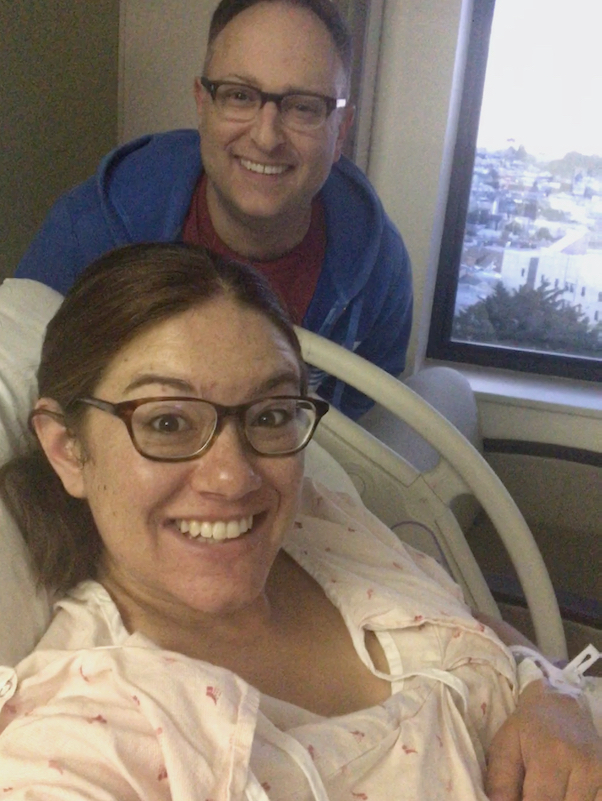A pea in the pod, a bun in the oven, preggo… no matter what you call it, everyone who experiences pregnancy knows you spend half of the nine-month stretch feeling joyful and excited and the other half feeling anxious and wondering if the things happening with your body are normal. You’re probably spending hours rabbit-holing into Google’s depths to read other mothers’ experiences and analyzing your own, wondering, “Is this normal?” Let’s break down a few common pregnancy “normals” and set your mind at ease.
You Are Not Your Belly
Few instances in your life could ever change your appearance so drastically and so quickly, and no two women are going to feel the same. While one may feel more beautiful than ever before, with shiny hair, glowing skin, and a cute, round belly, another woman may be counting down (by the minute) until her due date so she can hit the gym and feel like her old self again. The normal response? Whatever is normal for you.
Know that it’s okay to feel whatever it is you feel about your body; just remember that you are not your belly or your thighs or your boobs. Many women feel negative about weight gain and don’t love that random strangers will comment on their stomachs and bodies without prompt or permission. Be gentle with yourself; you’re creating a life, and your body has to change for that to happen. You will feel like yourself again one day, sooner than you think. In the meantime, pay attention to the happy changes going on with your body, especially when you’re able to feel those fluttery kicks from within.
Sex Drive (Or Park)
Some research points to an increased libido during your second trimester, and supposedly during this time, you’re feeling hot and ready for lovemaking at any time of day or night. This may be normal for some, and for others, it may be the exact opposite, where you sleep with a fly swatter next to your bed to fend off any unwanted advances (unless, of course, it actually is just the much-needed neck massage and nothing more. Yeah, right. We know your tricks.).
The point is, a lot is happening with your body and mind during this time (you’re growing a little human, for goodness sake), with hormones raging like they might during a slow jam during an eighth-grade dance. You’re feeling it? You’re not feeling it? Don’t worry. Whatever you’re feeling is normal. But if you’re concerned about the increase or decrease in your sex drive, talk with your doctor, and have an honest discussion with your partner about your needs.
The Prolapse and the Pee
Something else totally normal that happens to women during pregnancy? Pelvic floor conditions, including urinary and fecal incontinence, and a little condition called prolapse, which happens when the ligaments holding up the pelvic floor stretch, causing the uterus to descend. When this happens, the bowels and/or bladder can be pushed up against the vaginal walls and can cause a bulge, or prolapse, to push out of your vagina.
While this entire description should be a headline on the pamphlets aiming to prevent unplanned teen pregnancies, it is a completely normal side effect of pregnancy and childbirth. Many women say it feels like something coming down into their vagina or that it feels like sitting on a small ball.
Pelvic floor conditions affect one in five women, so to say it’s normal is an understatement. Every pregnant woman has peed a little without making it to the bathroom, but some pelvic floor conditions can be serious, so alert your doctor if you show symptoms, both during pregnancy and afterward. Together you can develop a plan for treatment and healing. There are also pelvic floor specialists who can develop a treatment plan for you.
And in the meantime, there’s leakproof underwear from brands like Proof. Choose the level of absorbency you need and the style you prefer (thong, brief, cheeky, hipster, and more), and you’ll get some piece of mind back.
Anxiety and Terror and Nightmares
When you’re pregnant, the last thing you want to hear is, “Oh, don’t mind her. She’s just emotional because she’s pregnant.” Don’t you just want to kick that person as hard as you can? Or maybe that’s just the emotions talking…? No, it’s a justified desire to kick that person as hard as you can. Of course, you’re emotional; you’re angry and weepy and nostalgic and sentimental and anxious and fearful and excited and happy and… it’s a smorgasbord of emotions, really. But every single one of them is normal, according to medical experts.
Yes, you will cry over sweet commercials, and yes, you will get irate that the bag in the box of cereal wasn’t closed the right way and now your Captain Crunch is stale. And yes, you will lie awake at night, mapping and remapping the best route to the hospital where you’ll be giving birth. And yes, it’s completely normal to start crying in your kitchen while looking at your dog, wondering how in the world you’re ever going to still love your dog, or if you’re going to love your new baby as much as your dog.
Having a baby is a big change, and every emotion you are feeling is normal. Talk to friends about their “crazy” pregnancy emotions, journal about what you’re feeling, or ask your partner to give you a secret signal if you’re spinning out. Sometimes it can be as easy as telling yourself, “This anxiety/fear/anger I’m feeling only feels like more than I can handle because I’m pregnant.” Or just take comfort in knowing that the worry and anxiety you feel now is a good indicator that you are going to be a caring, concerned, and wonderful mom.
Finding Your New Normal
Try to stay off WebMD about your bump in the night, and instead talk with friends and family who have been pregnant and may have had similar experiences. And always mention anything you find concerning to your doctor. It doesn’t always seem like it, but the nine months are going to be behind you, and before you know it, you’ll be Googling “Is This Normal?” questions about your new little one. For now, try to relax and know that the most normal thing about the questions you’re asking is that every other pregnant woman is asking them as well.




























